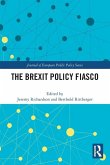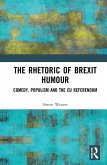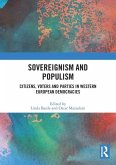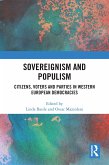This book offers a novel perspective on the UK's withdrawal from the European Union, providing insights to the ways in that domestic concerns interact with European policy to produce sometimes counter-intuitive outcomes.
The 2016 decision by the United Kingdom to withdraw from the European Union was a seminal one for both political parties in the UK. This innovative volume considers the extent to which the interrelation between the national and the European arenas produced significant opportunities for reshaping political action. The nesting of these two levels matters, firstly in allowing for the mobilisation of domestic actors around European issues and secondly, in explaining why seemingly unimportant or counter-productive actions are taken. The tensions this generated reached a critical juncture with the referendum, a rupture that highlights the extent to which a nominally second-order vote can have fundamental impacts on the first order's preferences.
Bringing together scholars from a wide range of approaches and covering various aspects of the Brexit process, this book offers a significant contribution to improving our understanding of an event that will shape British and European politics for a generation.
The chapters in this book were originally published as a special issue of the Journal of Contemporary European Studies.
The 2016 decision by the United Kingdom to withdraw from the European Union was a seminal one for both political parties in the UK. This innovative volume considers the extent to which the interrelation between the national and the European arenas produced significant opportunities for reshaping political action. The nesting of these two levels matters, firstly in allowing for the mobilisation of domestic actors around European issues and secondly, in explaining why seemingly unimportant or counter-productive actions are taken. The tensions this generated reached a critical juncture with the referendum, a rupture that highlights the extent to which a nominally second-order vote can have fundamental impacts on the first order's preferences.
Bringing together scholars from a wide range of approaches and covering various aspects of the Brexit process, this book offers a significant contribution to improving our understanding of an event that will shape British and European politics for a generation.
The chapters in this book were originally published as a special issue of the Journal of Contemporary European Studies.









